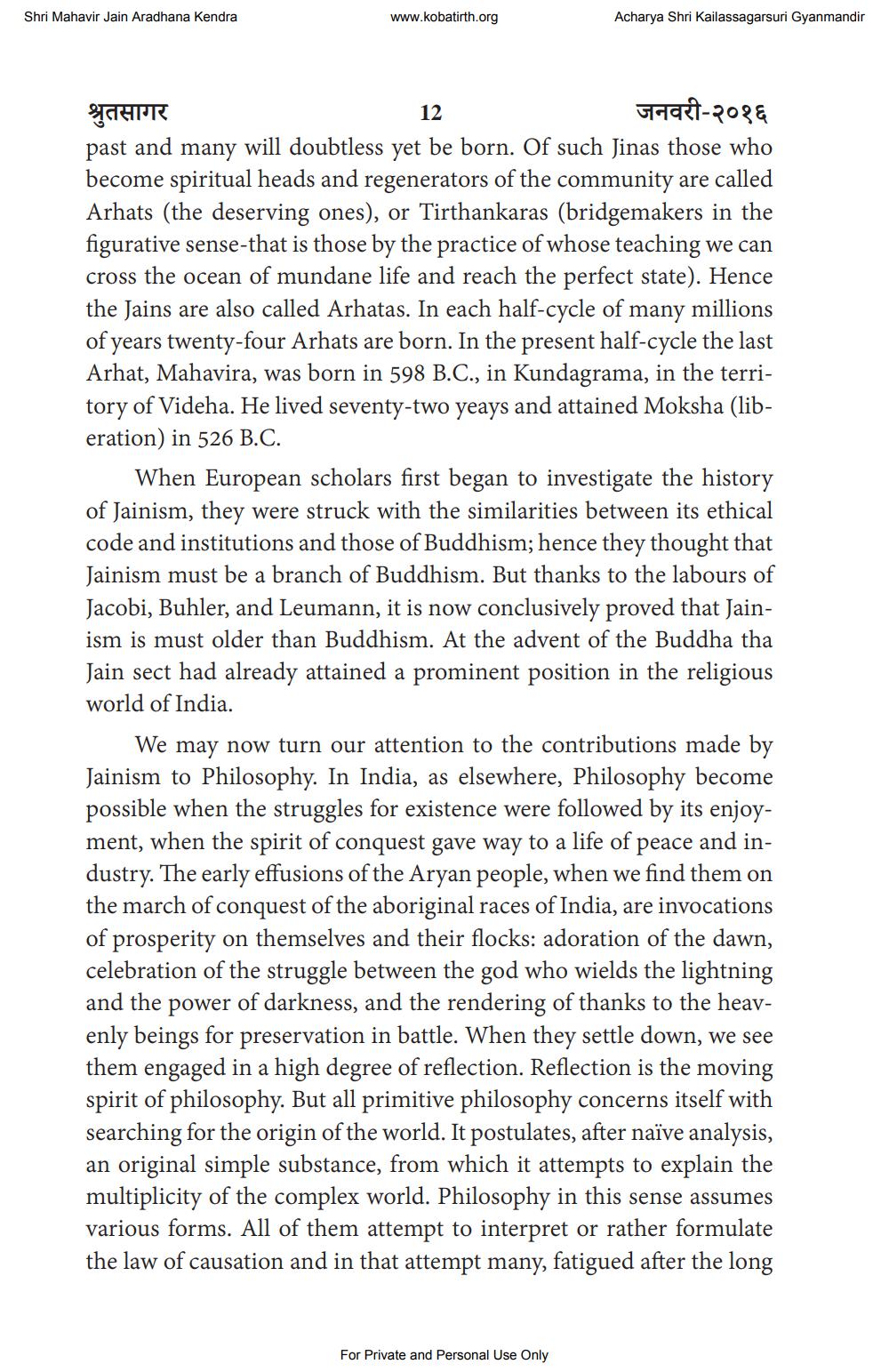________________
Shri Mahavir Jain Aradhana Kendra
www.kobatirth.org
Acharya Shri Kailassagarsuri Gyanmandir
श्रुतसागर
12
जनवरी-२०१६ past and many will doubtless yet be born. Of such Jinas those who become spiritual heads and regenerators of the community are called Arhats (the deserving ones), or Tirthankaras (bridgemakers in the figurative sense-that is those by the practice of whose teaching we can cross the ocean of mundane life and reach the perfect state). Hence the Jains are also called Arhatas. In each half-cycle of many millions of years twenty-four Arhats are born. In the present half-cycle the last Arhat, Mahavira, was born in 598 B.C., in Kundagrama, in the territory of Videha. He lived seventy-two yeays and attained Moksha (liberation) in 526 B.C.
When European scholars first began to investigate the history of Jainism, they were struck with the similarities between its ethical code and institutions and those of Buddhism; hence they thought that Jainism must be a branch of Buddhism. But thanks to the labours of Jacobi, Buhler, and Leumann, it is now conclusively proved that Jainism is must older than Buddhism. At the advent of the Buddha tha Jain sect had already attained a prominent position in the religious world of India.
We may now turn our attention to the contributions made by Jainism to Philosophy. In India, as elsewhere, Philosophy become possible when the struggles for existence were followed by its enjoyment, when the spirit of conquest gave way to a life of peace and industry. The early effusions of the Aryan people, when we find them on the march of conquest of the aboriginal races of India, are invocations of prosperity on themselves and their flocks: adoration of the dawn, celebration of the struggle between the god who wields the lightning and the power of darkness, and the rendering of thanks to the heavenly beings for preservation in battle. When they settle down, we see them engaged in a high degree of reflection. Reflection is the moving spirit of philosophy. But all primitive philosophy concerns itself with searching for the origin of the world. It postulates, after naïve analysis, an original simple substance, from which it attempts to explain the multiplicity of the complex world. Philosophy in this sense assumes various forms. All of them attempt to interpret or rather formulate the law of causation and in that attempt many, fatigued after the long
For Private and Personal Use Only




